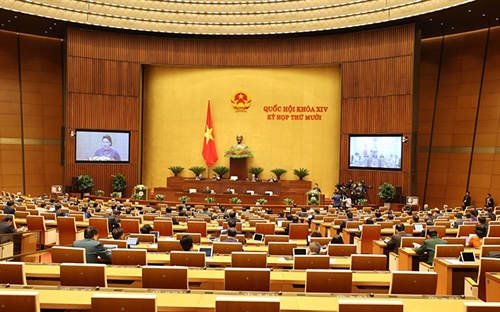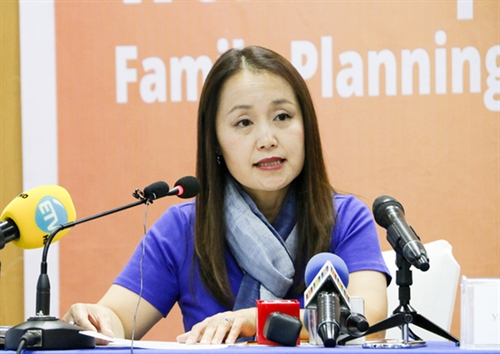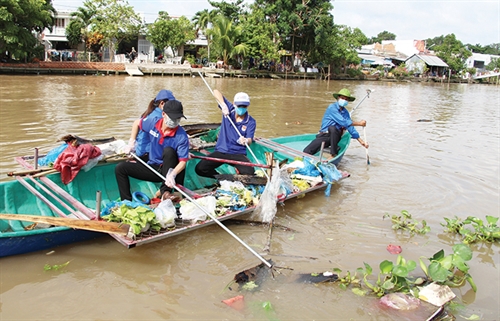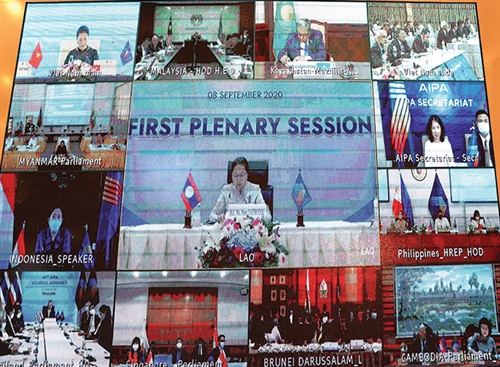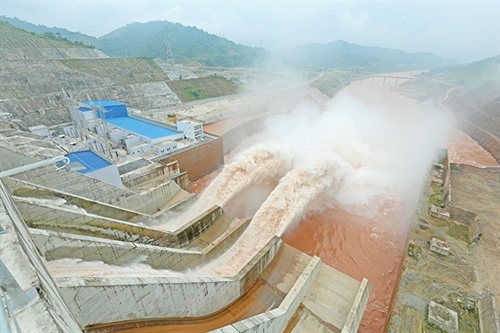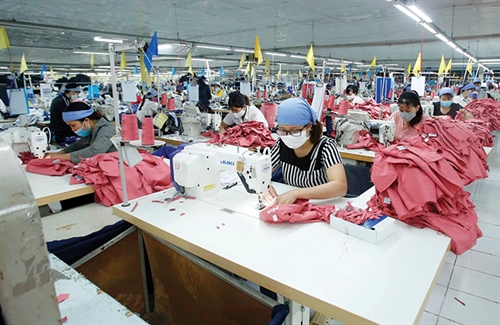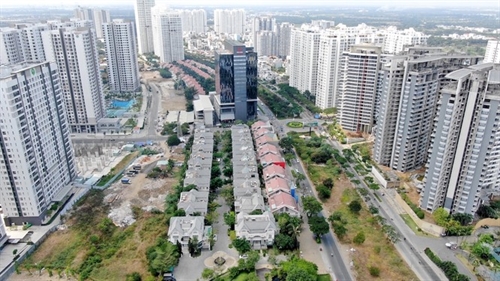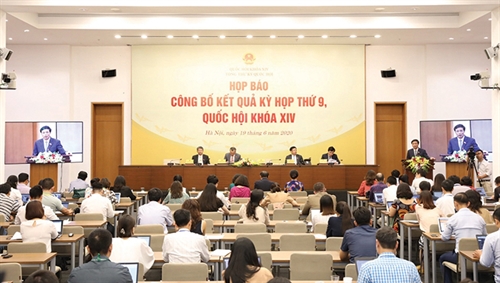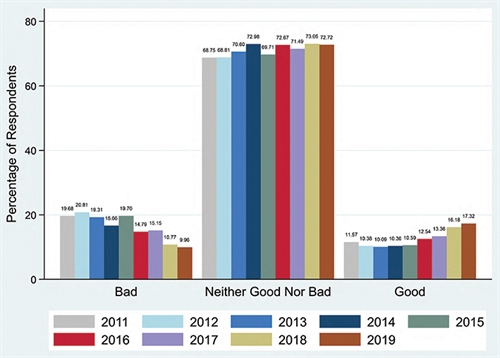1. Investment Law
Passed on June 17, 2020, and came into force on January 1, 2021, the 2020 Investment Law contains a lot of notable changes.
For example, the 77-article Law removes dozen of sectors and trades from the list of those subject to conditional business investment, including services provided by commercial arbitration organizations, commercial franchise, logistics services, ocean shipping agencies, real estate brokerage training services, assisted reproductive services, vaccination services, and plastic surgery services, among others. It also introduces a list of sectors and trades in which foreign investors are subject to market access conditions and adds provisions on sectors and trades banned from or subject to conditional offshore investment.
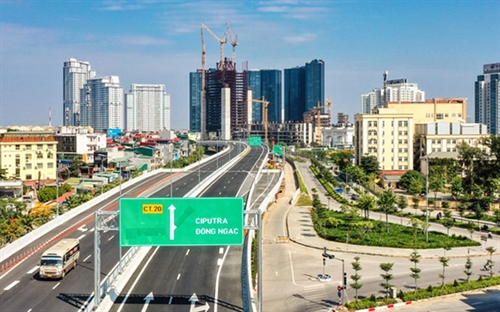 |
| The Mai Dich-Nam Thang Long overhead road is opened in October 2020 Photo: Internet |
2. Enterprise Law
Compared to the 2014 version, the new 218-article Law contains many new provisions to help enterprises cut time and expenses in business registration.
From January 1, 2021, the effective date of the Law, enterprise founders may carry out enterprise registration procedures online via the National Business Registration Portal, and decide by themselves on the type, quantity, shape and content of their seals as well as those of their branches and representative offices.
Additionally, the Law changes the definition of state enterprise, adds subjects banned from establishing and managing enterprises, and annuls provisions requiring business registration agencies to periodically send enterprise registration information and changes of enterprise registration to competent state agencies.
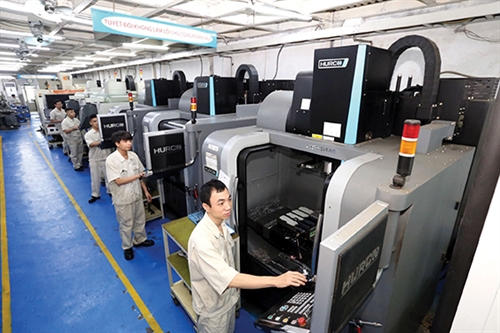 |
| A division of Hanoi-based PMTT Automation Joint Stock Company Photo: Anh Tuan/VNA |
3. Law on Environmental Protection
Under the 171-article Law, which is designed to replace the 2014 Law on Environmental Protection from January 1, 2022, protection of environmental components and people’s health is considered the central and decisive content of all environmental policies.
Worthy of note, the Law synchronizes environmental management tools to be applied to each stage of an investment project from the time of considering and giving approval in-principle of investment intention until the project is completed and officially put into commission.
Particularly, Article 29.3 on contents of environmental impact assessment will become effective earlier on February 1 next year.
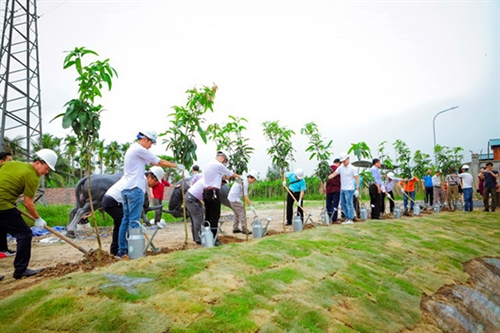 |
| Planting trees in Hai Phong city’s Nam Cau Kien industrial park__Photo: Internet |
4. Law on Investment in the Form of Public-Private Partnership
With 101 articles arranged in 11 chapters, the first-ever Law on Investment in the Form of Public-Private Partnership (PPP) is designed to attract the private sector to invest in some important and essential infrastructure sectors in the PPP form. The Law provides state investment incentives and guarantees for investors, sets out forms of investor selection, conditions for investors to conduct investment projects in the PPP form, and the mechanism for sharing of increased or decreased turnover amounts in the course of implementing PPP projects.
The Law will take effect on January 1, 2021.
5. Decree 56/2020/ND-CP
Issued on May 25 and effective on the same day, the Decree stipulates the management and use of ODA and concessional loans provided by foreign donors. Accordingly, ODA and concessional loans will be used only for development investment but not spent on current expenditures. Meanwhile, foreign loans may not be used for payment of taxes, charges or loan interests; for procurement of cars, supplies or equipment in preparation for the operation of projects after they are completed; or for payment of ground clearance expenses and expenses for operation of project management units.
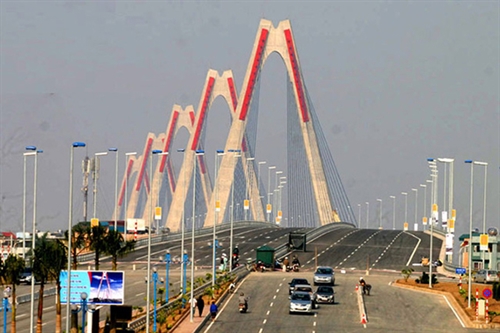 |
| Nhat Tan bridge in Hanoi is built with ODA loans__Photo: Internet |
6. Decree 41/2020/ND-CP
Dated April 6, the Decree provides for the extension of time limits for payment of tax and land rental. It is designed to support businesses adversely affected by the COVID-19 pandemic to overcome the difficult times. Credit institutions and foreign bank branches engaged in implementation of support packages for those affected by the COVID-19 pandemic are also eligible for extension of tax and land rental payment time limits.
7. Decree 126/2020/ND-CP
The guiding text of the 2019 Law on Tax Administration came into force on December 5 and will apply to the 2021 fiscal year. It contains a series of new provisions designed to create convenience for taxpayers and reduce tax-related regulation compliance costs while increasing the effectiveness of tax administration activities.
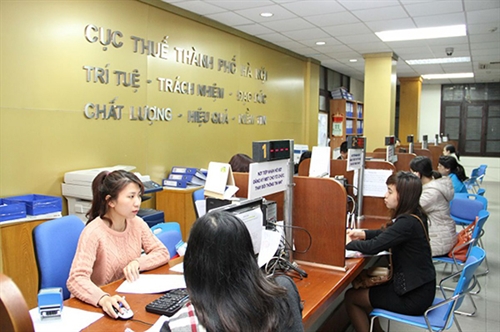 |
| Carrying out electronic tax procedures at Hanoi Tax Department__Photo: Internet |
8. Decree 132/2020/ND-CP
Dated November 5, 2020, the Decree specifies tax administration of enterprises having affiliate transactions.
It provides the principles, methods and order of determining factors forming prices of affiliate transactions; rights and obligations of taxpayers in determining prices of affiliate transactions; and responsibilities of state agencies in tax administration of taxpayers having affiliated transactions.
This Decree took effect on December 20, 2020, and applies from the corporate income tax period of 2020.
9. Decree 91/2020/ND-CP
Under the Decree, from October 1, 2020, organizations and individuals may be fined up to VND 100 million for sending advertising messages or emails or making telemarketing calls to subscribers on the National DoNotCall List. The Decree also encourages the sending advertising messages with identifiers so as to reduce the spread of spam messages, save time and costs for those wishing to use identifiers.
10. Decree 123/2020/ND-CP
 |
| Issuing e-invoices for customers at a supermarket__Photo: Internet |
Scheduled to come into force on July 1, 2022, the Decree provides for the management and use of invoices upon sale of goods and provision of services as well as documents when carrying out procedures related to taxes, charges and fees.- (VLLF)
